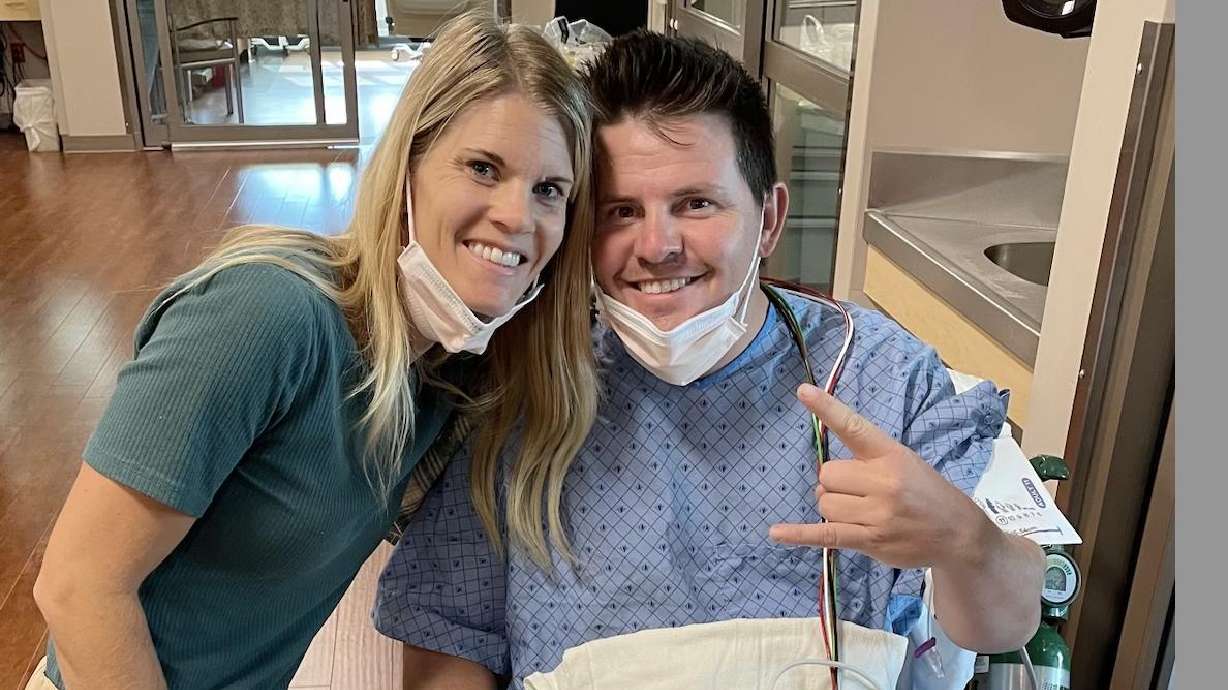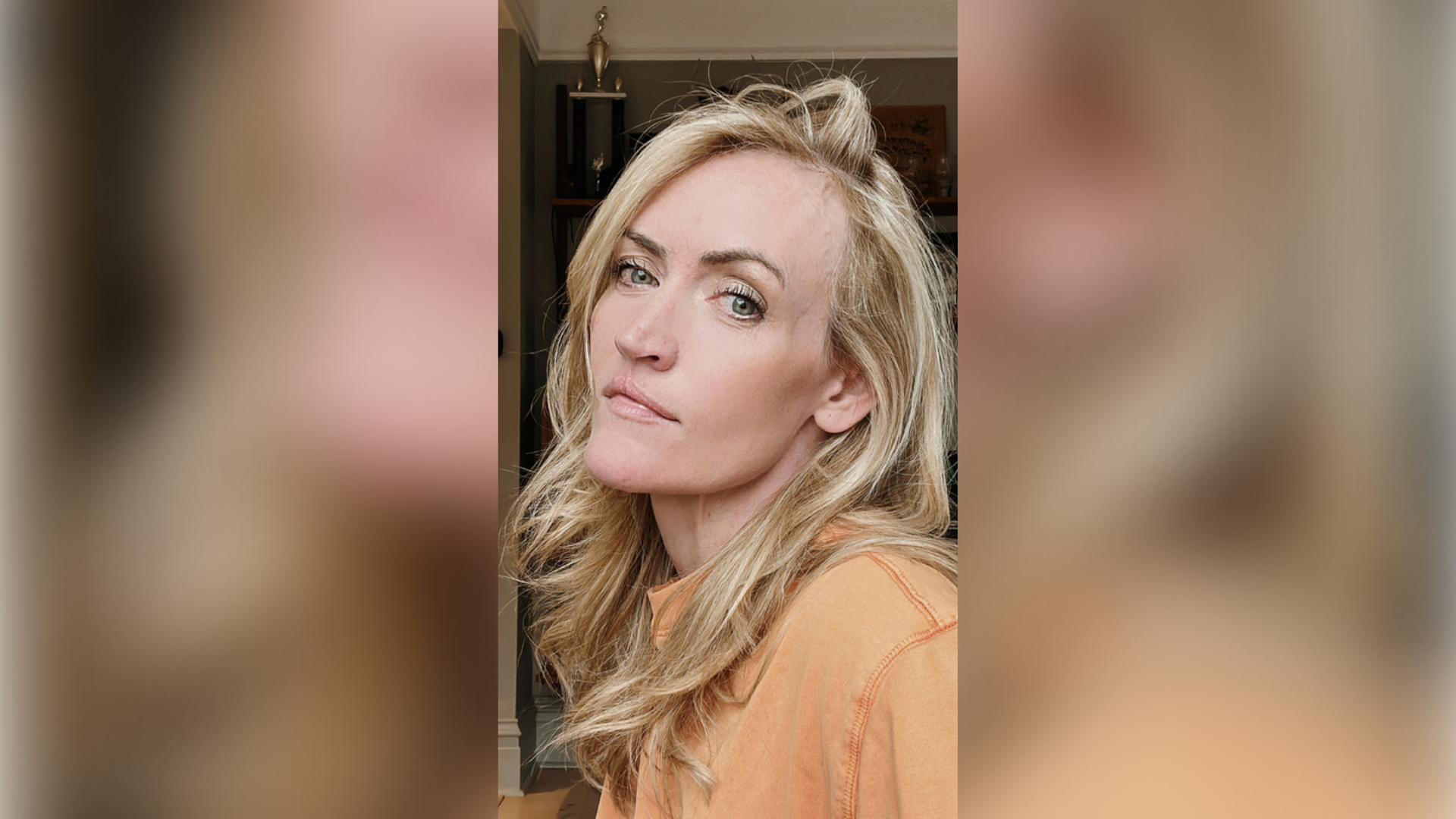HEALTH
Infectious disease specialist talks COVID-19 treatment, President Trump
Oct 5, 2020, 5:37 PM | Updated: 5:50 pm

In this image released by the White House, President Donald Trump works in his conference room at Walter Reed National Military Medical Center in Bethesda, Md., Saturday, Oct. 3, 2020, after testing positive for COVID-19. (Joyce N. Boghosian/The White House via AP)
(Joyce N. Boghosian/The White House via AP)
SALT LAKE CITY — President Donald Trump has left Walter Reed National Military Medical Center and arrived home to the White House after a three-day stay for COVID-19 treatment.
The president tweeted earlier Monday:
I will be leaving the great Walter Reed Medical Center today [Monday] at 6:30 P.M. [E.T.] Feeling really good! Don’t be afraid of Covid. Don’t let it dominate your life. We have developed, under the Trump Administration, some really great drugs & knowledge. I feel better than I did 20 years ago!
COVID-19 has killed nearly 210,000 Americans.
Mr. Trump arrived at Walter Reed for COVID-19 treatment Friday afternoon.
Dr. Todd Vento, Intermountain Healthcare infectious disease specialist, joined Dave Noriega and Debbie Dujanovic to discuss Mr. Trump’s medical regimen at the hospital and what his recovery from COVID-19 could look like.
The COVID-19 treatment plan for President Trump
Mr. Trump received the following COVID-19 medical treatment at Walter Reed hospital:
- Remdesivir, an anti-viral medication
- Remdesivir is being tested as a treatment for COVID‑19 and has been authorized for emergency use in the US and other nations for people with severe symptoms. The treatment is intended to shorten recovery time for coronavirus patients.
- Dexamethasone, a steroid
- Mr. Trump has also reportedly been given the steroid dexamethasone, which is typically given to patients on supplemental oxygen or needing ventilation.
- Experimental antibody treatment
- Mr. Trump was also being treated with a dose of an experimental antibody therapy made by Regeneron, a biotechnology company. Regeneron scientists selected two antibodies that best neutralized a version of coronavirus in the lab. Antibodies are proteins the body makes to fight infection. The scientists copied those two antibodies to make the COVID-19 treatment.
Vento said the Regeneron therapy is given to patients early to attack the virus.
In Utah, Vento said, dexamethasone is given to coronavirus patients who are “a little more severe.”
Vento said Mr. Trump is receiving care at Walter Reed hospital “not necessarily because he was that ill but possibly because of who he is and what his job is.”
“They didn’t want him to get worse and watch that happen at the White House. Instead, they put him in a place where they can watch him and see if he gets worse,” the doctor said.
Vento added that a typical patient wouldn’t be administered steroids, such as dexamethasone, as early as Mr. Trump was in the course of his illness.
‘Not at liberty to discuss’
Mr. Trump’s health team did not disclose the findings of his lung scans during the most recent update to the public on his condition. Dr. Sean Conley, the president’s physician, said Monday that he’s “just not at liberty to discuss” the findings. Conley said during a briefing Sunday that Mr. Trump had been given supplemental oxygen and experienced two episodes of drops in his oxygen level since his COVID-19 diagnosis and treatment began.
Vento said patients without underlying lung problems should have oxygen saturation levels that read in the high 90s. If it’s in the low 90s, “we get a little concerned,” he said.
“With Covid, you get a lot of inflammation in the lungs,” Vento said. The virus works its way into the lining and cells of the lungs, he said.
What’s next for Mr. Trump?
“What do the next several days hold for the president, and when do we know as a country that he’s out of the woods?” Debbie asked.
“Honestly, because he got early, very early, like probably the earliest that you can think of, two antiviral therapies and very early steroids, it’s going to be hard to predict his course,” Vento said.
The doctor added the two antiviral therapies could shut down COVID-19 from growing or replicating and alter the course of what his illness could have been.
“Typically, when we get concerned, it’s into the second week of therapy,” he added. “If folks get past that early second week, seven to 10 days after start of symptoms, that’s about when we start to see folks have problems with breathing and oxygenation and we get a little concerned.
“So he’s still not out of the woods in terms of timeline. We just have to watch his clinical course,” Vento said. ” . . . Now they’ll have to watch him and may have a different expectation on his response based on the fact that he got therapies that are not typically given at that course in illnesses.”
Dave & Dujanovic can be heard weekdays from 9 a.m. to 11 a.m. on KSL NewsRadio. Users can find the show on the KSL NewsRadio website and app, a.s well as Apple Podcasts and Google Play
How To Prevent the Spread of COVID-19 Coronavirus
COVID-19 coronavirus spreads person to person, similar to the common cold and the flu. So, to prevent it from spreading:
- Wash hands frequently and thoroughly, with soap and water, for at least 20 seconds.
- Don’t touch your face.
- Keep children and those with compromised immune systems away from someone who is coughing or sneezing (in this instance, at least six feet)
- If there is an outbreak near you, practice social distancing (stay at home, instead of going to the movies, sports events, or other activities.)
- Get a flu shot.
Local resources
Utah’s Coronavirus Information
The Church of Jesus Christ of Latter-day Saints
Utah Coronavirus Information Line – 1-800-456-7707
National Resources
Centers for Disease Control and Prevention











